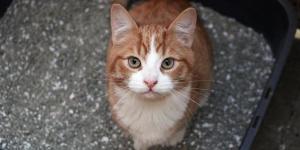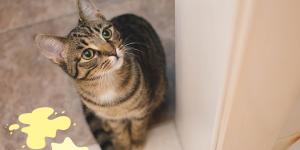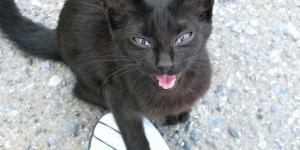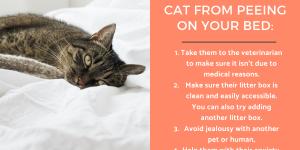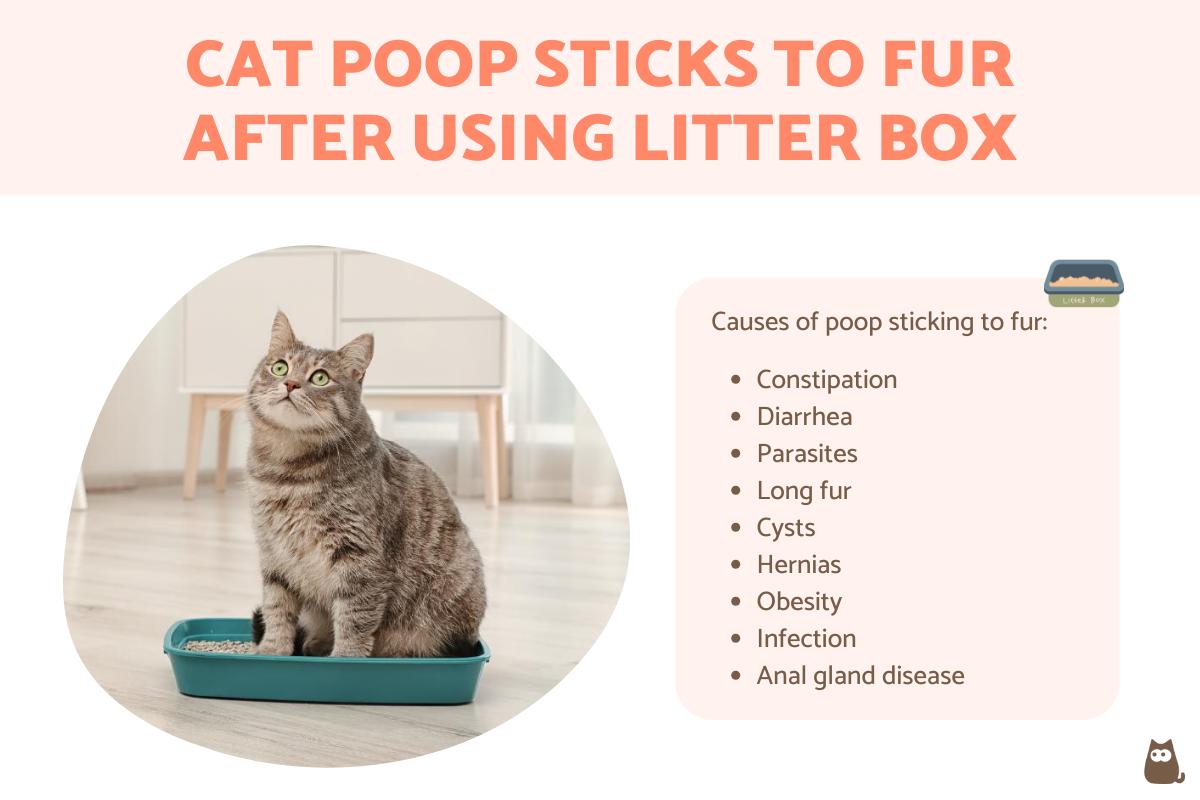My Cat Has Poop on Their Fur After Using the Litter Box



See files for Cats
Cats are known for being very hygienic animals, often cleaning parts which seem impossible to reach. While some have more difficulty than others, they can clean their behind by bending over and latching on to their legs. When we see a cat has stool on their butt after using the litter box, it might suggest they are not being as hygienic as usual. However, there are different reasons for this phenomenon and it is not necessarily because the cat is being lazy. Sometimes it can be difficult to reach, but there are also physical and behavioral health issues which might lead to poop getting stuck to their fur.
At AnimalWised, we find out why my cat has poop on their fur after using the litter box. We learn of the common causes of dirty fur after pooping and what to do about them.
- Constipation
- Diarrhea
- Intestinal parasites
- long fur
- Anal gland disease
- Cyst or tumor
- Infection or inflammation
- Obesity
- Hernias
- Wounds
- How to prevent poop sticking to my cat's fur after using the litter box
Constipation
The first reason why cats have poop stuck to their butt after using the litter box is constipation. A relatively common symptom in cats, constipation occurs when the cat cannot pass their stool. It is usually because the stool is too hard or dry, making movement through the gastrointestinal tract difficult. The cat strains to expel their feces, often resulting in poorly formed stools which can stick to their fur.
Constipation in cats is a symptom and can have various underling causes. These include the following:
- Poor nutrition
- Internal or external obstruction of the rectum (e.g. prostatic tumors)
- Painful processes
- Inflammation of the GI tract
- Hairballs
- Other blockages
Also known as trichobezoars, hairballs are accumulations of hair which compact in the intestine. This prevents feces from passing though the gut. They are more common in longhaired cats, but they also can be influenced by factors such as poor diet and stress.
Constipation in cats can be a very frustrating and painful condition. It can lead to the becoming apathetic and not eating due to the gastrointestinal discomfort. Sometimes it can be treated with simple dietary changes or supplements, but severe cases may require medications such as laxatives. Surgical intervention may be required if the impaction is particularly acute.
Prevention of constipation includes ensuring the cat has a proper diet and sufficient hydration. If other symptoms present such as blood in the cat's stool, go to a veterinarian immediately.
Learn more about what is the best diet for cats with our related guide.
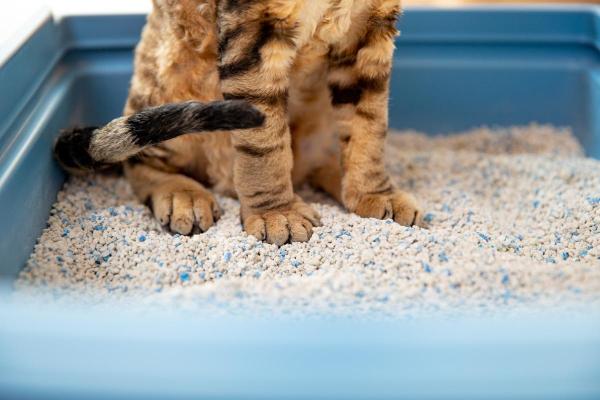
Diarrhea
Just as hard stools due to constipation can cause feces to stick to a cat's butt when pooping, loose stools can do the same. Diarrhea is a condition where the stool contains too much water and cannot compact properly. It results in loose stools which easily stick to the cat's fur due to their liquid consistency.
Diarrhea is a relatively common symptom in cats, but no less a serious one. It is symptomatic of various diseases, ranging from simple dietary inadequacies to serious systemic infections. Often the diarrhea will resolve itself, but the cat will need to be taken to a veterinarian if it persists for more than 24 hours. Diarrhea also involves the loss of fluids, so it is vital we ensure to cat is kept hydrated.
It is a common symptom of cats as they age. Learn more with our article on why older cats get diarrhea.
Intestinal parasites
We might associate parasites in cats with external parasites such as fleas and ticks. However, internal parasites are some of the most common and result in various symptoms. Intestinal parasites are common since they often develop from something the cat has ingested. This can cause obstruction, discomfort and itching of the anal area, resulting in stools sticking to their fur after using the litter box.
The irritation of the cat's anus caused by parasites can mean the cat drags their butt on the ground to relive it. This can spread stool which not only sticks to their fur, but the home environment. Parasites often also cause diarrhea, leading to stools on the fur as explained above.
For these reasons and more, it is imperative that we provide a suitable deworming treatment for our cat. The specific deworming agent we need to use should be determined by the veterinarian and a deworming schedule set in place.
Learn more about the importance of deworming animals with our related guide.
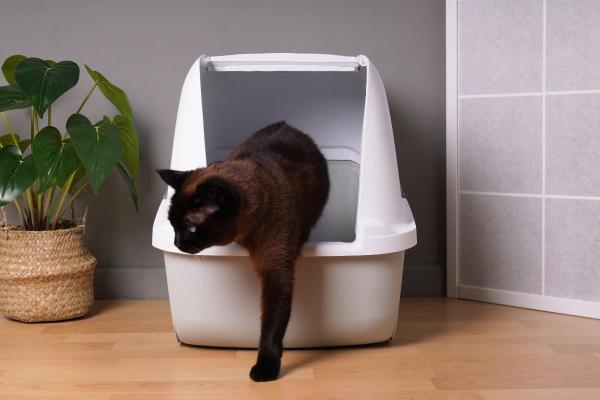
long fur
Including mixed-breed cats, the different types of longhaired cat breeds are more prone to having poop stuck to their coat. While it will not be uniform length all over their body, the long hair of these cats is everywhere. This includes the cat's anus, meaning stools can stick at the point of excretion. While the likelihood is exacerbated with diarrhea, constipation and other gastrointestinal issues, even healthy poop will stick to their fur.
Taking care of longhaired cats has tis own challenges, not least the brushing required to catch all the dead hair flying around the home. Poop and other dirt sticking to their coat is common. Despite the face the cats will carry out their own hygiene routine, it is common for them to miss some parts. In this case, it is important we clean their hair regularly.
Check out our guide on brushes for longhaired cats to learn more about the particular care they need.
Anal gland disease
A cat's anal glands are used to help with excretion of feces, among other functions. By secreting a distinctive oily liquid, the cat's stools are lubricated and can pass more easily. They also contain information in the form of distinct pheromones which other cats can register via their vomeronasal organ.
For various reasons, it is possible these glands will become impacted and lead to anal gland disease. When this is the case, the fluids are unable to be secreted properly. The result is the fluid builds up, often complicated by secondary infections. Inflammation prevents the cat's anus to excrete feces correctly. This can lead poop to stick to the cat's fur. If the infection progresses, a painful abscess can occur that puts the cat's overall health at risk.
When we see impacted and/or infected anal glands, we need to take the cat to the veterinarian. They can treat any infection with antibiotics, as well as express the impacted glands. If impaction occurs regularly, they will demonstrate how you can express a cat's anal glands yourself at home to prevent it in the future.
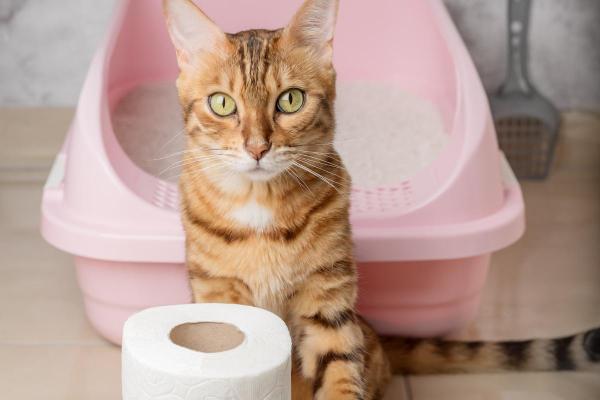
Cyst or tumor
Although it is much less common, it is possible a cyst or tumor can result in your cat being unable to defecate properly. This can result in poop sticking to the cat's fur after using the litter box. If the lump is in the rectum or anywhere on the perianal area, it can put pressure on the anal opening. This can result in the feces being excreted incorrectly, similar to constipation.
Additionally, a painful lump may cause the cat to adopt a different posture when defecating. They do so to avoid pain. This abnormal posture can make it difficult for stool to come out cleanly, resulting in staining of the fur. If we add to all this that the lump or cyst is infected, it can ooze pus or other liquids that can cause the cat to stain when it poops.
Learn about what happens when an elderly dog has a tumor in our related article.
Infection or inflammation
An infection or inflammation in the anus area can similarly cause improper evacuation of the cat's bowels with the consequence of poop sticking to the cat's fur. The underlying cause of infection can be viral, bacterial, fungal or even parasitical in nature, with inflammation also being related to allergies and other issues. The infection can also affect the rest of their organism, resulting in lethargy and other symptoms which can cause them to neglect their hygiene.
Sensations of discomfort, irritation and pain can accompany these infections and inflammatory processes. The result is the cat rubbing their butt on the ground to relieve these sensations and spreading feces over their fur. Treatment of the underlying cause should correct the problem and return them to their previous levels of hygiene.
An infection the area around the anus can be particularly influential in affecting their defecation. Learn more with our article on causes and treatment of perianal fistulas in cats.
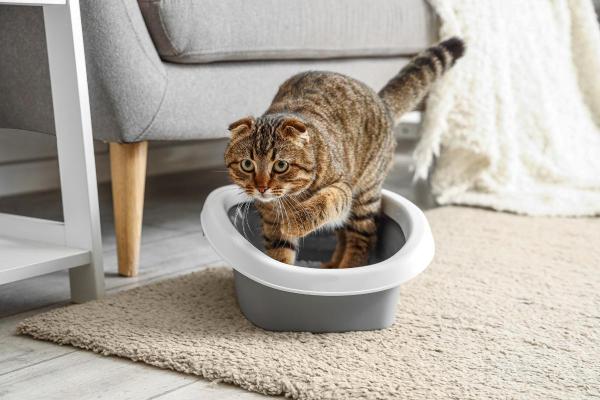
Obesity
If your cat is overweight, it is very possible that this is the cause of the accumulation of poop in the anal area. This includes the cat having poop stuck to their fur. This normally happens because the cat cannot clean this area due to their physical limitations.
Obese cats may have trouble turning and reaching all parts of their body, including the perianal area. The cause is excess fat and body size, but it may also be a result of related health problems. They may have a lack of energy or even arthritis which makes cleaning difficult. Reducing their weight with diet and exercise can help with their poop problem, as well as improve overall health.
Hernias
Especially the perineal area, a hernia can be a cause of why a cat's poop sticks to their fur after going to the toilet. The hernia itself has many symptoms, including constipation and pain which make defecation difficult. Perianal hernias can also cause anal prolapse, resulting in the rectum protruding through the anal sphincters.
Hernias can also cause a partial obstruction of the intestine or anal canal, making defecation more difficult and painful for the cat. This can result in excessive straining, partially passed stool or loose stools, all of which can contribute to cat soiling their coat.
Discover more about an umbilical hernia in cats with our related article.
Wounds
If the feline has developed a wound in the anal area, it is possible they will be unable to properly expel feces or clean themselves properly due to the pain. For this reason, it can indirectly lead to feces sticking to the hair around their anus. The risk of secondary bacterial infection is also greatly increased when the wound is in close proximity to their anus.

How to prevent poop sticking to my cat's fur after using the litter box
As you can see, many of the problems described above can be prevented. Preventing the underlying cause of poop sticking to a cat's fur after using the litter box will greatly improve their hygiene. This will also best help to ensure their overall health and well-being. Some ways you can prevent poop sticking to your cat's fur include:
- Food: make sure you offer your friend a balanced, high-fiber diet, adapted to their weight and age. Try to avoid obesity, as it can cause several problems in your feline's body.
- Deworming: maintain deworming schedules to prevent parasitical infestation. As explained above, these infestations can result in the appearance of diarrhea and other conditions which result in poop sticking to their coat.
- Vaccinations: similarly, maintain vaccination schedules to avoid infections and other diseases which can have gastrointestinal symptoms.
- Coat care: brush your cat so they ingest as little hair as possible when licking themselves or other cats. This helps to avoid hairballs which cause obstruction. Although longhaired cats are particularly susceptible, all cats with hair will need regular brushing to maintain their coat.
When cats are waiting treatment for the cause of poop sticking to their fur, it is common for them to continue to have this problem until it takes effect. We may think we should bathe the cat every time this happens, but this is not the case. Bathing a cat too much can have negative consequences on their coat, not to mention the stress it can cause in many cats.
For this reason, we may only want to clean the localized anal area. The use of wet wipes suitable for cats are encouraged as we can clean the mess without having to cause undue stress. Learn more with our article on how to clean a cat without bathing them.
This article is purely informative. AnimalWised does not have the authority to prescribe any veterinary treatment or create a diagnosis. We invite you to take your pet to the veterinarian if they are suffering from any condition or pain.
If you want to read similar articles to My Cat Has Poop on Their Fur After Using the Litter Box, we recommend you visit our Other health problems category.

